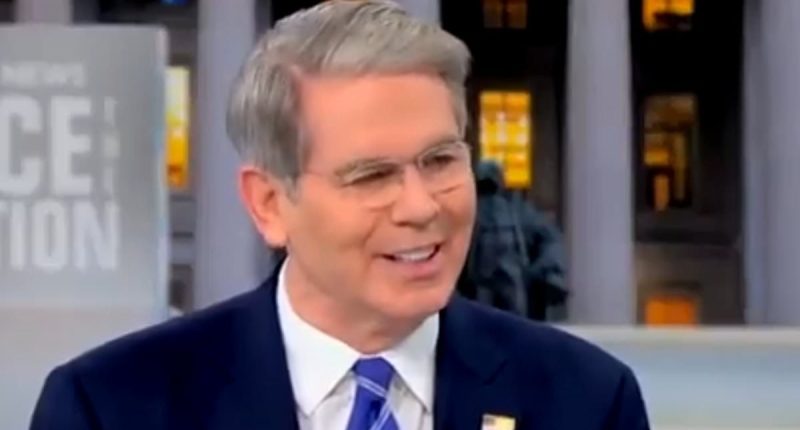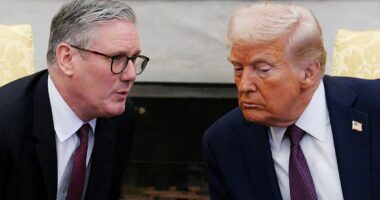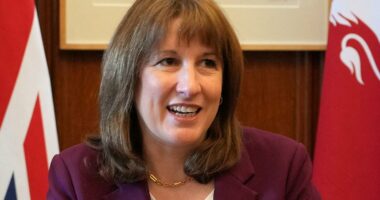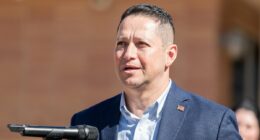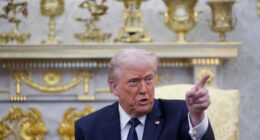Share this @internewscast.com

Treasury Secretary Scott Bessent dismissed the previous inflation warnings made by a veteran CBS anchor during an interview on national television this Sunday, countering months of doubt about Trump’s economic measures.
Appearing on Face the Nation, Bessent faced questions from anchor Margaret Brennan about the Trump tariffs and their threat to Americans’ wallets.
Brennan had posed similar questions months earlier as she told how economists were forecasting prices to skyrocket and inflation to surge.
But during Sunday’s interview, Bessent gleefully batted away such concerns.
‘Margaret, when we were here in March, you said there was going to be big inflation. There hasn’t been any inflation,’ Bessent fired back, smirking.
Bessent appeared to celebrate after the Labor Department’s report revealed that the rise in consumer prices had dropped to its lowest in over four years.
The consumer price index increased by just 2.3% compared to the previous year in April, slightly down from 2.4% in March. This was a surprising outcome given the concerns raised by economists when Donald Trump implemented his new tariffs earlier in April.
Bessent’s smirk at the low inflation figures said it all.
Months earlier Brennan had pressed him hard about warnings from institutions like the Peterson Institute, which predicted Trump’s tariffs would ignite runaway inflation.
But on Sunday Bessent managed to turn the tables.
‘Actually, the inflation numbers are the best in four years. So why don’t we stop trying to say this could happen, and wait and see what does happen,’ Bessent said.
Bessent calmly brushed aside a reference to a Wall Street Journal column by Republican strategist Karl Rove warning how tariffs could damage the GOP’s prospects in the next election.
Citing a South China Morning Post report, Bessent told how Chinese suppliers are now eating up to 66% of the tariff burden, blunting the effect on US consumers.
‘What we are trying to do is to de-risk,’ he explained. ‘We do not want to decouple, Margaret, but we do need to de-risk.’
His remarks reflect a broader shift in the Trump administration’s trade policy – an effort to reduce reliance on China for critical industries like semiconductors and pharmaceuticals.
‘What China is doing is they are holding back products that are essential for the industrial supply chains of India, of Europe, and that is not what a reliable partner does,’ Bessent said.
Pressed on the risks of escalating trade tensions, Bessent was unflinching.
Last week, he acknowledged that talks with China had ‘been a bit stalled,’ but added that the White House remains confident that President Trump and Chinese President Xi Jinping will soon iron out their differences with the expectation being the two leaders will speak directly.
On the looming issue of the US debt ceiling, Bessent was equally blunt.
‘The United States of America is never going to default. That is never going to happen. We are on the warning track and we will never hit the wall,’ he said.
Bessent also took aim at Wall Street’s warnings, brushing off JPMorgan Chase CEO Jamie Dimon’s prediction of a bond market crisis.
‘I’ve known Jamie for a long time, and for his entire career he’s made predictions like this. Fortunately none of them have come true. That’s why he’s a great banker – he tries to look around the corner,’ Bessent quipped.
On tariffs, Bessent remained bullish, despite concerns about their impact on industries like construction.
‘So is it going to impact the construction industry? Maybe,’ Bessent conceded. ‘But it’s going to impact the steel industry in a great way.’
